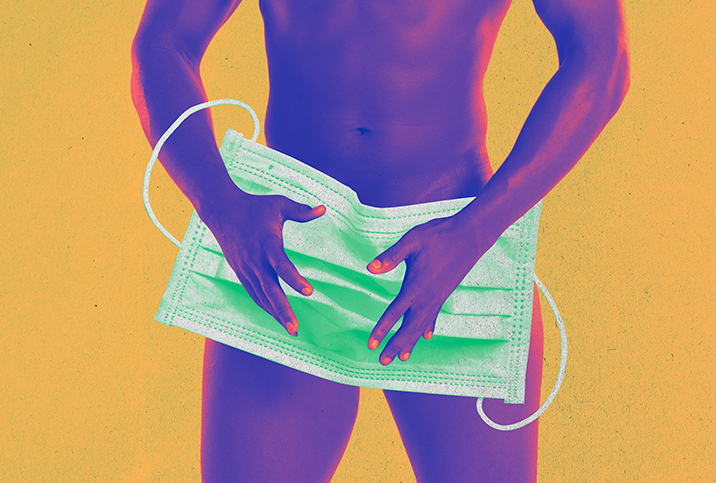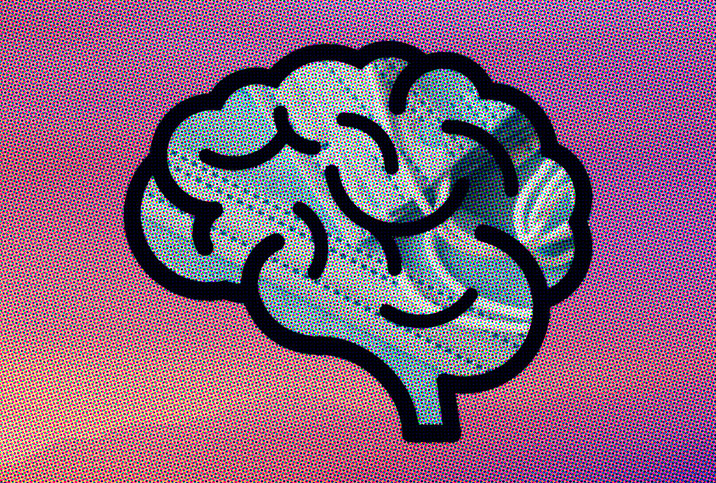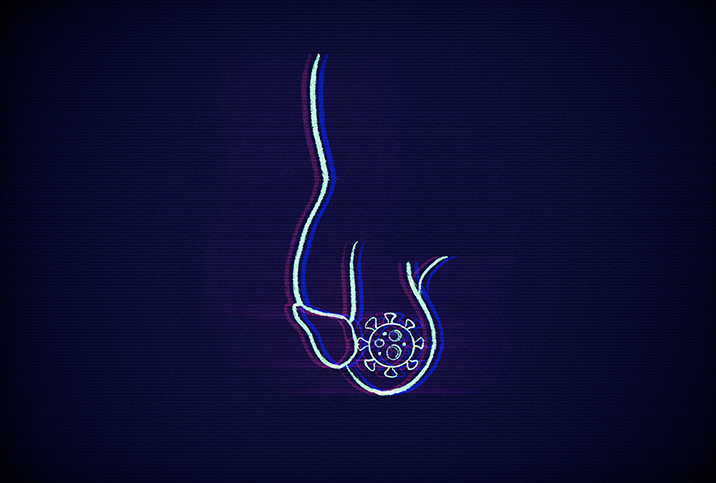Is Long COVID Affecting Your Sex Drive?

It's pretty normal to experience a low libido when you're sick. However, it's a lot less common for your sex drive to diminish in the weeks and months that follow an illness.
That is, until now.
According to a new analysis published in Nature Medicine, a group of researchers in the United Kingdom found some people who develop "long COVID" may also notice a change in their libido in the months that follow.
Naturally, this phenomenon can be pretty annoying if you were hoping to get "back to normal" after having and getting through COVID-19.
We did a little more research to find out how and why some people experience a change related to long COVID and libido.
What researchers have discovered
Over the course of almost a year and a half—from January 2020 to April 2021—researchers collected data on people who experienced long-term health complaints after contracting COVID-19. They found there were a number of common symptoms after 12 weeks of testing negative that included amnesia, hair loss, bowel incontinence, limb swelling and apraxia, or difficulty with skilled movement.
While many of these symptoms had previously been diagnosed and noted, researchers also found that a loss of libido and erectile dysfunction (ED) appeared frequently, too.
"These observations will help to further narrow the focus on factors to investigate that may be causing these persistent symptoms after an infection, and how we can help patients who are experiencing them," said the study's UK-based co-author Anuradhaa Subramanian, M.Sc.
"This research validates what patients have been telling clinicians and policymakers throughout the pandemic," said study lead Shamil Haroon, associate clinical professor in public health at the University of Birmingham in the U.K. "The symptoms of long COVID are extremely broad and cannot be fully accounted for by other factors such as lifestyle risk factors or chronic health conditions."
The question remains, though, is long COVID affecting your sex drive? Unfortunately, it's not always easy to tell.
"There's no definition of what constitutes a 'normal' sex drive," said Pippa Murphy, the sex and relationship expert at the retail website Condoms.uk. "However, if you feel less of a desire to have sex than you did pre-COVID, then that could be a telltale sign. Another telltale sign is that you don't get turned on as easily as you used to or you feel like you can't be bothered with any form of sex that you used to enjoy, including masturbation."
How to modify your sex life with long COVID
You may find the effects of long COVID don't just lead to a lower sex drive but also might affect how you feel during sex.
"Dysautonomia is a disorder of the autonomic nervous system which is becoming a regular occurrence in those who are experiencing long COVID," explained Ness Cooper, a clinical sexologist and therapist in the U.K. "Disorders that can affect the autonomic nervous system can affect people's heart rate, blood pressure, breathing and even sex drive."
If your heart rate or blood pressure has changed due to long COVID, you may become dizzy in upright sex positions, Cooper noted.
"Staying in positions that are side lying and lying down may be best to avoid this," she added. "Positions that are supported with sex position pillows and straps can help reduce the amount of energy needed to move during these sex positions and can make it easier on the lungs."
Reaching orgasm might also be more difficult.
"Long COVID may reduce blood flow to the genitals, and this can make orgasm harder," Cooper explained. "Using orgasm balms may help increase blood flow to these areas. Signs that blood flow may be less around the genitals could be reduced lubrication, and using a water-based lubricant may help reduce aggravation to the vagina during sex and make it more enjoyable."
The symptoms of long COVID are extremely broad and cannot be fully accounted for by other factors such as lifestyle risk factors or chronic health conditions.
Cooper also suggested using toys like vibrators to increase the blood flow to the clitoris if you are struggling to stimulate the area.
While all of these tactics can help make sex more enjoyable (even if you aren't in the mood as often as you used to be), it's also OK to listen to your body and reduce the number of times you have sex each week if your sex drive is lower than normal.
If your sex drive doesn't return to what you consider normal after a few months, it's recommended that you discuss your symptoms with your doctor.
"Sexual dysfunction concerns should be discussed with your healthcare provider, as sometimes there's something else that's going on that needs looking into to gain a broader understanding of what will help," Cooper said. "Some individuals may find that it could be the medication they are on to help with long COVID causing some issues, and their doctor will be able to help discuss alternative medications or other options to help increase libido and genital response."
Regardless, seeking help is essential. While we are still learning new characteristics of COVID-19, as well as its aftermath, you should not be struggling alone with no clear answers.

















